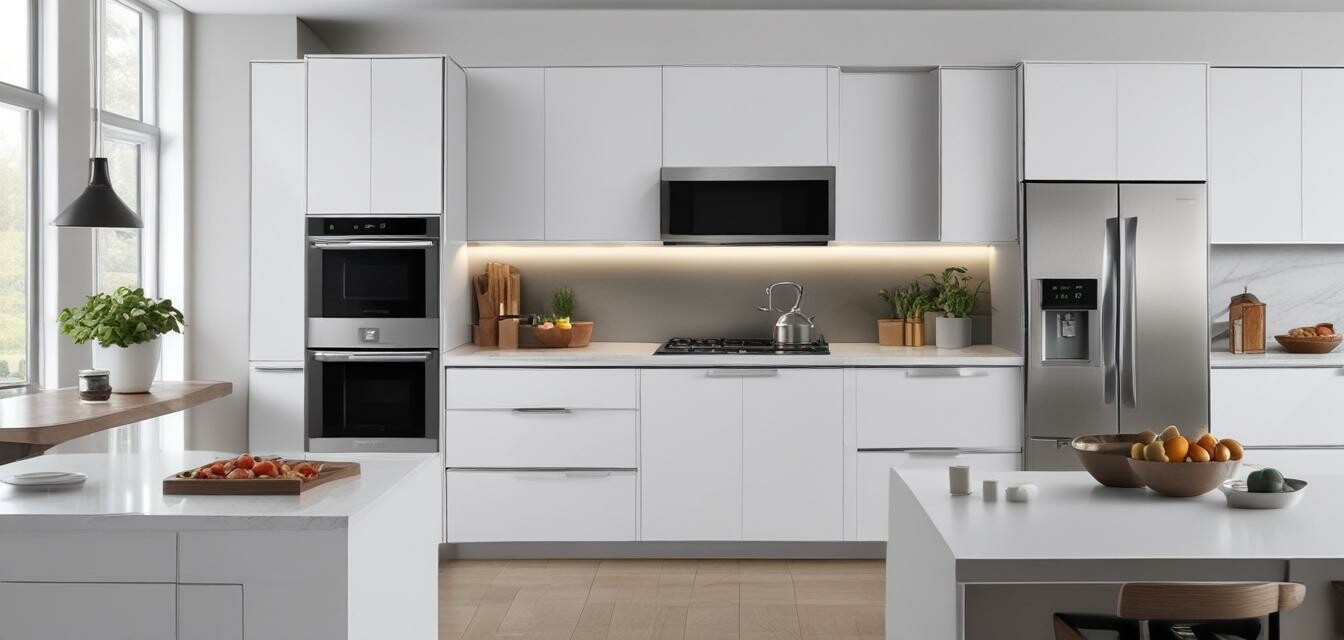
Innovative Smart Home Appliances Revolutionizing 2024
Key Takeaways
- Smart appliances are becoming increasingly integrated into daily life.
- Automation and voice control are key features of modern appliances.
- Energy efficiency is a significant benefit of new smart devices.
- Home security systems are evolving with enhanced smart technology.
- The trend towards smart home integration continues to grow rapidly.
As we step into 2024, the landscape of smart home devices is rapidly evolving. Innovative smart appliances are not only streamlining our chores but also enhancing our overall quality of life. This article delves into the groundbreaking technologies shaping the future of the smart home ecosystem.
The rise of automation in smart appliances
Automation is at the heart of the smart home movement. With advanced technologies, everyday appliances are becoming smarter, allowing for a seamlessly integrated household. Here are some key examples:
- Smart ovens: Automatically adjust cooking times and temperatures based on the recipe you’re following.
- Smart refrigerators: Track ingredients and suggest recipes based on what you have at home.
- Smart washing machines: Optimize washing cycles based on load size and fabric type.
How voice control is transforming smart home use
Voice assistants have changed how we interact with our appliances. With just a command, you can command your smart oven to preheat or ask your refrigerator for a recipe idea. This hands-free functionality adds convenience to daily routines.
Benefits of energy efficiency
Energy-efficient smart appliances are not only beneficial for the environment but also for your wallet. They consume less energy compared to traditional appliances, leading to substantial savings on utility bills. Additionally, many of these devices provide detailed energy usage reports, helping homeowners make more informed decisions.
Examples of energy-efficient smart devices
| Appliance Type | Energy Saving Feature |
|---|---|
| Smart dishwashers | Use sensors to determine the optimal wash cycle, saving water and energy. |
| Smart thermostats | Learn your heating and cooling preferences to optimize their operation. |
| Smart lighting systems | Automatically adjust brightness based on natural light conditions. |
Enhancements in home security
Home security systems are also adapting to meet the needs of homeowners. The integration of smart technology has led to improved security solutions. Here are some noteworthy advancements:
- Smart cameras: Provide real-time footage accessible from your smartphone.
- Smart locks: Allow remote locking and unlocking, offering peace of mind when away from home.
- Smart doorbells: Enable two-way communication, letting you see and speak to visitors even when you're not home.
The trend towards smart home integration
As the market for smart home devices grows, so does the trend toward integrated systems. Homeowners are increasingly looking for ways to connect their devices for a more cohesive experience.
| Integration Category | Description | Benefits |
|---|---|---|
| Home assistants | Control multiple smart devices via voice or app. | Single point of control for convenience. |
| Security systems | Combine cameras, locks, and alarms for comprehensive coverage. | Enhanced security with real-time alerts. |
| Energy management systems | Monitor and manage energy usage across devices. | Improved energy efficiency and cost savings. |
Conclusion
The innovations in smart home appliances available in 2024 are reshaping how we manage our households. From enhancing efficiency to improving home security, these advancements are paving the way for a smarter, more connected living experience. To learn more about various categories of smart devices, check out our Smart Home Entertainment and Smart Lighting sections.
Pros
- Increased convenience and time-saving features.
- Enhanced energy efficiency and cost savings.
- Improved security and monitoring options.
- Seamless integration with home automation systems.
Cons
- Initial investment can be high.
- Dependence on internet connectivity.
- Potential privacy concerns with smart devices.
As technology progresses, keeping up with the latest smart home trends will be essential for homeowners looking to enhance their living experience. Stay tuned for more insights on news and trends in smart home technology!


